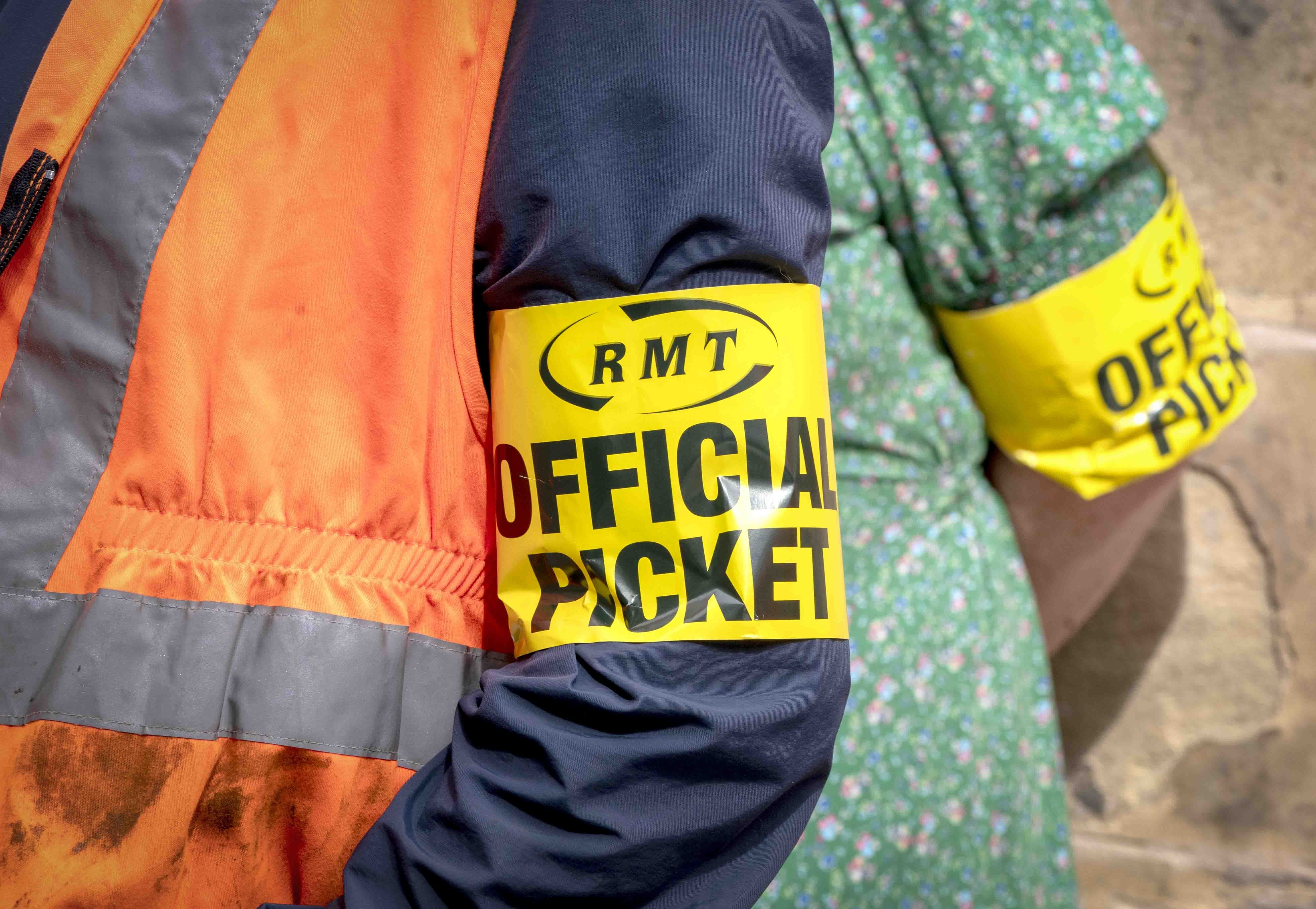MPs approve controversial moves to allow agency workers to replace strikers
Business minister Jane Hunt said change is needed to remove the ‘outdated blanket ban’.

Your support helps us to tell the story
From reproductive rights to climate change to Big Tech, The Independent is on the ground when the story is developing. Whether it's investigating the financials of Elon Musk's pro-Trump PAC or producing our latest documentary, 'The A Word', which shines a light on the American women fighting for reproductive rights, we know how important it is to parse out the facts from the messaging.
At such a critical moment in US history, we need reporters on the ground. Your donation allows us to keep sending journalists to speak to both sides of the story.
The Independent is trusted by Americans across the entire political spectrum. And unlike many other quality news outlets, we choose not to lock Americans out of our reporting and analysis with paywalls. We believe quality journalism should be available to everyone, paid for by those who can afford it.
Your support makes all the difference.Ministers have been accused of introducing a “scab charter” after their plans to allow agency workers to replace strikers were approved in the Commons.
MPs voted 289 to 202, majority 87, in favour of the regulations, which were brought forward in response to the rail dispute which has seen thousands of workers go on strike in recent weeks.
Business minister Jane Hunt said change is needed to remove the “outdated blanket ban” on employment businesses supplying agency workers to cover official industrial action.
She told the Commons: “Some trade unions appear to us to be looking to create maximum disruption in a bid to stay relevant rather than constructively seeking agreement with employers and avoid conflict.”
Ms Hunt said the change does not restrict the ability of workers to go on strike and denied it would have an impact on safety.
Questions were raised about the availability of spare teachers, nurses and train drivers to fill in the gaps during a strike.
Labour’s deputy leader Angela Rayner also said: “These proposals are anti-business and anti-worker. They will risk public safety, rip up workers’ rights, and encourage the very worst practices. And above all they will not prevent strikes, they will provoke them.”
Conservative MP Alec Shelbrooke (Elmet and Rothwell) voted against the plans, which he noted were not in the party’s 2019 general election manifesto.
He said: “It seems to me that it was done very quickly in reaction to what’s going on in the public sector – which don’t get me wrong I completely think is the wrong place to take – but public sector employees represent a small proportion of employees in this country.
“The private sector does have quite a few unscrupulous employers and if people are going to lose their ability to have an effect when they withdraw their labour, then I am afraid they have effectively lost the ability to withdraw their labour.”
Mr Shelbrooke, first elected in 2010, added: “For the first time in my entire parliamentary career I shall be voting against the Government tonight on the measure to bring in agency workers.”
Labour MP Ian Byrne (Liverpool West Derby) said the Government should be legislating to protect workers’ rights and to learn lessons from Covid.
He added: “Instead tonight we’re voting on a scab charter for bad employers from a Government that has picked its side.”
The TUC had called on MPs to reject “pernicious anti-union measures” which it believes threatens public safety and will worsen industrial disputes.
The proposals have also been criticised by the recruitment industry.
Conservative MP Jonathan Gullis (Stoke-on-Trent North) offered to return to the classroom to help if teachers go on strike.
Both the National Education Union and NASUWT have threatened strikes over pay in the autumn term.
He said: “As a former teacher, as a former trade union representative, I’m more than happy to go back in any classroom to help out when you have the disastrous ‘not education union’ threatening to bring down schools in this country.”
Labour also sought to annul regulations to increase the level of damages a court can award in the case of unlawful strike action.
Ms Hunt said it has long been the case that employers can bring a claim for damages against a trade union for such action, but told MPs the regime has not been reviewed since 1982.
She said: “The maximum award of damages which could be made against the smallest unions will increase from £10,000 to £40,000 and for the largest unions will increase from £250,000 to £1 million.”
Labour’s motion to annul the measures was defeated by 290 votes to 201, majority 89.